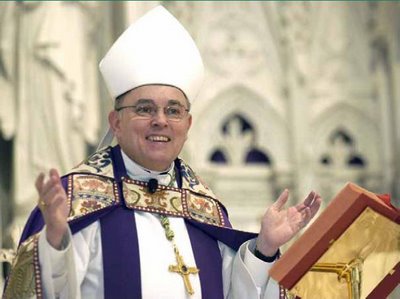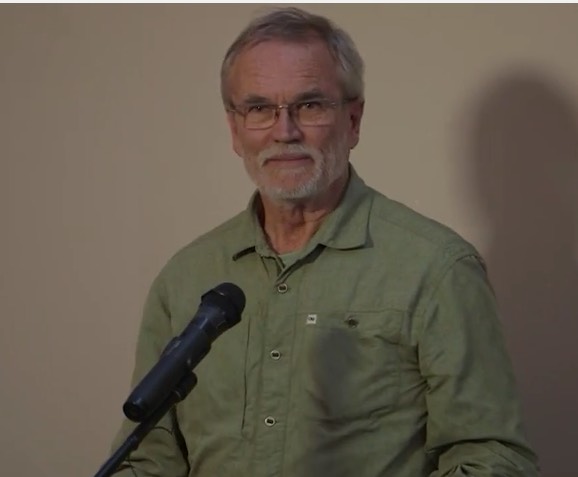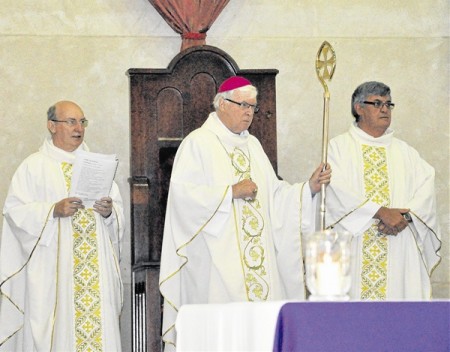By Jean Hopfensperger and Tony Kennedy and Paul McEnroe
Former Archbishop John Nienstedt said he remains “dumbfounded” by the allegations of personal misconduct that emerged last year during an internal church investigation of his behavior — a report that the archdiocese now is considering making public.
“It pains me deeply that my good name and reputation have been put into question by allegations that are entirely false and based wholly on rumor, hearsay, or innuendo,” said Nienstedt last week, in written responses to questions from the Star Tribune.
Commissioned by the Archdiocese of St. Paul and Minneapolis, the probe looked into claims that Nienstedt had engaged in behavior that was inappropriate for a priest. The Star Tribune has learned that investigators collected affidavits from priests, former seminarians and a former priest alleging actions, some dating to the Detroit area in the early 1980s, that range from inappropriate touching to visiting a gay nightclub.
Nienstedt resigned June 15, after Ramsey County prosecutors filed criminal and civil charges against the archdiocese, alleging “failure to protect children.” Nienstedt said he hoped his resignation would “give the archdiocese a new beginning.”
But the existence of the investigation has become yet another dilemma for a church sharply criticized for its handling of dozens of cases of alleged sexual abuse by priests. Earlier this year it filed bankruptcy to help deal with the mounting financial toll of those cases.
Some priests and parishioners are pressing interim Archbishop Bernard Hebda to make last year’s investigation of Nienstedt public. He must balance those demands against the promise of confidentiality granted to those who participated in the investigation, as well as the possible implications — if any — it could have in the criminal case brought by Ramsey County.
Hebda has pledged to “resolve the matter in a way that is reasonable and fair.” Nienstedt said he wants the issue behind him so that his name can be cleared.
“It is frustrating, both for me and the public, that this process has gone on for so long,” Nienstedt said in his first remarks to the media since his resignation. “I was dumbfounded because the allegations were so far-fetched and utterly untrue.”
Investigation begins
The archdiocese declined to answer questions about the investigation. Last year, it hired the Greene Espel law firm in Minneapolis to look into allegations of clergy misconduct involving Nienstedt and adults. The law firm’s work ended last summer, and the chancery hired Minneapolis criminal defense attorney Peter Wold to complete the probe.
Greene Espel has publicly disputed claims by the archdiocese that Nienstedt did not intervene in the investigation.
The firm conducted interviews and collected affidavits, or sworn statements, from people who worked with or knew Nienstedt. The Star Tribune has confirmed that five Catholic priests, one former priest and a former seminarian were among those who provided affidavits.
In one affidavit, a priest in Harrison Township, Mich., reported seeing Nienstedt at a gay nightclub in Windsor, Ontario, just across the border from Detroit in the 1980s. “I recall seeing John — and there is no doubt in my mind that it was him based on my prior interactions with him — at the Happy Tap,” the Rev. Lawrence Ventline wrote in his affidavit. “He appeared to wave me off as I was coming — and I backed off because I did not want impose on him.”
Another affidavit from a Michigan priest said that Nienstedt pulled up to his car in an area frequented by gay men one December in the early 1980s and asked him if he had any “poppers,” an inhalant used by gay men to enhance sexual pleasure. When he got into Nienstedt’s car, and Nienstedt recognized him as a former student, he changed the subject, the priest told the Star Tribune.
A former seminarian at Sacred Heart Seminary in Detroit, James Heathcott, also filed an affidavit. He said that Nienstedt — who was the seminary’s rector — expelled him after he refused an invitation to join Nienstedt and two other seminarians on a private weekend at a ski chalet in the late 1980s.
In addition, the Star Tribune obtained a 2014 letter sent by a former student at Sacred Heart Seminary to former auxiliary bishop Lee Piché, who oversaw the Nienstedt investigation, alleging that Nienstedt touched his buttocks after a dinner together one night between 2000 and 2002. Joseph Rangitsch said he protested and Nienstedt replied he could “make things unpleasant for you very quickly.”
Nienstedt denies claims
Nienstedt denied all the allegations, point by point and in general. He also stressed that none of the people who filed affidavits claimed that he “ever abused any minor, had a sexual relationship with any individual, or committed any crime.”
The former archbishop insisted he never set foot in a gay nightclub or visited gay cruising spots. He said he was not even in Detroit in December 1982, when the Michigan priest claims he asked for the “poppers.” He was assigned to the Vatican Secretariat of State in Rome and was not allowed to come home for the holidays.
He acknowledged he drove by the park in question somewhat regularly — by necessity.
“When I was Cardinal John Dearden’s secretary, the Cardinal’s residence where I lived was near the alleged park,” he wrote. “I had to drive through the park to get to other destinations within the city of Detroit.”
Nienstedt said Heathcott was not expelled from the seminary but left on his own after informing the seminary he did not feel called to be a priest. The ski trip, added Nienstedt, was open to seminarians and faculty — not a “private chalet.” “Anyone who wanted to go could sign up,” he said.
Nienstedt said he had no memory of meeting Rangitsch and said he was no longer rector at the seminary at the time of that alleged incident. Nienstedt’s attorney points out that Rangitsch has a criminal record in Montana, including misdemeanor convictions for sexual assault.
Nienstedt believes some of the accusations are “retribution” for his stance on social issues. As auxiliary bishop in Detroit, he ended the gay community’s use of a Catholic church for liturgies. In Minnesota, he led an unsuccessful campaign to amend the Minnesota Constitution to ban gay marriages.
“Certain groups in Detroit began spreading untrue rumors about me following difficult decisions I made as the rector of the Detroit seminary and as an Auxiliary Bishop,” he said. “Some priests in Detroit also vehemently disagreed with my positions and decisions.”
Nienstedt added that he didn’t air all the evidence he has against those who made charges “because it would be a disservice to the people who cooperated with the investigation under a promise of confidentiality.”
The affidavits are among many documents and interviews compiled by investigators last year that Hebda is now reviewing.
Next steps
Meanwhile, Ramsey County still has an active investigation in its criminal prosecution of the archdiocese, which charges that the “highest level of leadership” failed to protect children from pedophile priests. St. Paul police confirmed it executed a search warrant on the archdiocese chancery in June. A court hearing in that case is set for Aug. 25.
If and when the church’s internal investigation is released, said Nienstedt, “I remain hopeful that, in the final evaluation, I will be exonerated.”
Since resigning June 15, Nienstedt has been spending time with friends and family. He said he would like to “continue in ministry in one form or another.”
The former archbishop said he’d like his legacy to be the archdiocese’s strengthened child protection protocols developed with clergy abuse victims, the hiring of excellent leadership to oversee ministerial standards, and initiatives to strengthen parishes and schools.
What the archdiocese decides to do with the investigation is being monitored by Twin Cities Catholics as well as national Catholic authorities, who say the St. Paul situation is extremely rare.
Facing scores of priest abuse claims, bankruptcy, civil and criminal charges — and the Nienstedt investigation controversy — the archdiocese is in uncharted terrain.
“I rarely say anything is unique in the Catholic Church, but this is a pretty unique situation,” said the Rev. Thomas Reese, senior analyst for National Catholic Reporter.
Complete Article HERE!




